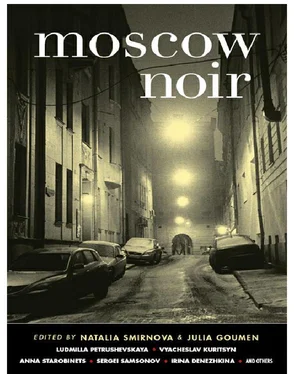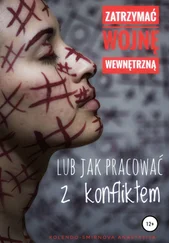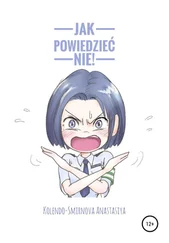Although she was, like her colleagues in humanity, made up of 90 percent water, that water was not potable, which in a different circumstance may have, at least partially, influenced the formation of sympathy toward her in her students as well as others around her.
Dad had called her Danaë. According to her passport she was Danaë. For her students and colleagues she was Dana Innokentievna, a teacher of Russian language and literature.
She had mutual feelings for her students, not because she thought it necessary to answer loathing with loathing, but just because it happened to be so: she was hated and she also hated. A pure coincidence of feelings directed toward one another (if it is allowed that hate is a feeling).
And so, she hated her students—just as in childhood she’d hated lumps in her cereal. In essence, they were indeed lumps in the undigestible cereal of existence. And Danaë imagined herself a lump as well—big, flabby, stale. In fact, Danaë loathed the directress Gavriushkina like she loathed fish oil or boiled onions. Yet she tried to act nice. And the more she pretended, the more she loathed—her students, her colleagues, the scantily clad woman standing in front of her in line at the supermarket—yes, that very woman with the cart full of ad-emblazoned frozen dinners.
Sometimes Danaë thought with bitterness: Why don’t the terrorists take all these vermin hostage? Why don’t they get blown up? Why do serial killers pass over the directress Gavriushkina and that lady with the frozen dinners?
Danaë Karakleva was forty-seven years old. She knew that there was nothing more to come. It was all over. All the gifts she could have received had already been received. She was simply brought into this remarkable thrift store with the breath of a violated cosmos wafting through it, and they said to her, “Pick something out,” and then they locked her in, in this thrift store where everything had already been picked over. And in this thrift store with the breath of a violated cosmos wafting through it, she had spent forty-seven years.
As regards this existence’s amorous propositions, Danaë Karakleva could say the following: “I was never certain that I loved any of those not numerous men who—each in his own time—shook their fatty deposits over my trembling bosom. If Cupid ever shot at my heart, he must have been shooting blanks.”
This thesis which she had invented herself resembled fact, much more so than the rumors about her inevitable old-maid-hood. Among the large-horned herd of her students, it was commonly said in such cases: “Oh yeah? Suck this .”
She liked looking at the shower of pills, especially the round ones, that resembled squashed pearls. She liked to ride the tram past the hospital and look at the sapphire windows of the operating rooms and imagine the surgeon making a fatal error…
Danaë and her dad lived in a five-story building, erected under Nikita Khrushchev in the time of the artificial, government-approved destruction of the ark of communal living. There were more than enough such buildings in the neighborhood of Perovo, as there were in many of Moscow’s outlying quarters. They were built out of either panels the color of tubercular spit or gray-pink brick. Each of these residential buildings lacked an elevator. Outward attractiveness and interior comfort—all this was also lacking. It might be easier to list what was present in these buildings: the metastases of all varieties of cancer; staircases by which one might climb to the heights of despair, and if one were to descend it would be into pits of madness; guitar chords of underworld ditties oft performed by greenhorns fated to disappear in the sands of Afghanistan or the ravines of Chechnya. Also present in these buildings were walls that had been viciously fooled by promises of becoming supplementary scrolls for God’s commandments…
Every day, Danaë returned to this building, having first stopped at the market or grocery store; she returned with a feeling of a hole, a nagging pain, in the very center of her being…
From the Karaklev family’s kitchen window one could see the subway entrance. In the morning rush hour, before heading out to work in the nearby school, Danaë slowly downed a cup of instant coffee while examining the dark human mass. The mass penetrated the underground, shuffling from one leg to another in penguin fashion. The sleepy faces of those people—especially in the dusk of winter mornings—looked ominously similar to one another, lacking features, something like the heads of nails when viewed face on.
Danaë’s manner of speaking was as bizarre as her vision. Her speech was understood only by the portraits of the classics that hung on the classroom walls, and not even by all of them. She doubted Maxim Gorky, for one. As regards her pupils—they simply whimpered. Or cursed. Some quietly, others with full voice—depending on how much nerve they had. Danaë was kept employed by the school because she seemed rather like an animal that had been listed in the little red book. A wide-faced, warty roe deer, for example.
“As recently as the beginning of the twentieth century, the Perovo neighborhood in the south-east of Moscow consisted of a treasure trove of toxic swamps, the kingdom of poisonous mycelium, and randomly intersecting paths along which it was dangerous to walk alone…” In this manner began the oral dictation, concocted by Danaë in order to test the literacy of her pupils, who had come back from their summer vacations with their heads well aired out. It ended thusly: “And now, fuckity-suckity, here you dwell, young sluts and indefatigable jerk-offs…”
Having spoken these words in her mind, Danaë stretched her pale lips into an ambiguous smile and began dictating another text—a fake one—that had been approved by the pederasts from the Ministry of Education: “In the spring the forest is awoken by trills, drills, spills, trolls, and various other junk…”
Her daddy, who had schooled her in the art of complex linguistic expression, was dying of cancer… Yes, Innokentii Karaklev adored phrases that produced an effect. And he had taught his own daughter to adore such turns of phrase. As a result, the speech of both the Karaklevs was as out of place in the neighborhood of Perovo as a fugue for organ would be in a shawarma shack in a resort town.
Watching over her daddy’s demise was crushing. Danaë thought it unbearable to have to live and suffer watching such a thing. But damn it if she thought her life worse than death. She was convinced that she could live on, even without a future. Somehow. She wished for her daddy to disappear. Yes, to disappear, like a bout of hiccups, which, having come from god knows where, torments you for a while and then snap! it’s gone just like that, no one knows how or where. Daddy—she had thought since childhood—wasn’t fated for the grave. She rejected the idea of his decomposition in that stuffy heat and darkness. Her daddy couldn’t become a skeleton. That’s what Danaë had thought previously. And her daddy could not be turned into an urn of gray powder. But Innokentii Karaklev was dying—he emitted the smell of decomposition and his daily caprices were driving his daughter closer to the brink.
The salary of a Russian schoolteacher permits one to purchase three of the most inexpensive urns, then dismember Daddy and shove him into the urns in equal parts, and transport the urns to three different polling stations, pretending that one has simply mistaken the place to somewhere else. But the salary of a Russian schoolteacher can only nurse Daddy back to health if he has been afflicted with a foot fungus. By purchasing the appropriate ointment. Yet Innokentii Karaklev was dying not from a foot fungus, but from cancer of the innards. The chemo had made him look even more cancerlike: his eyes bulged, his back had lost its layer of fat, and touching it brought to mind the shell of a shrimp. Soon he’ll learn to walk backward, thought Danaë.
Читать дальше












